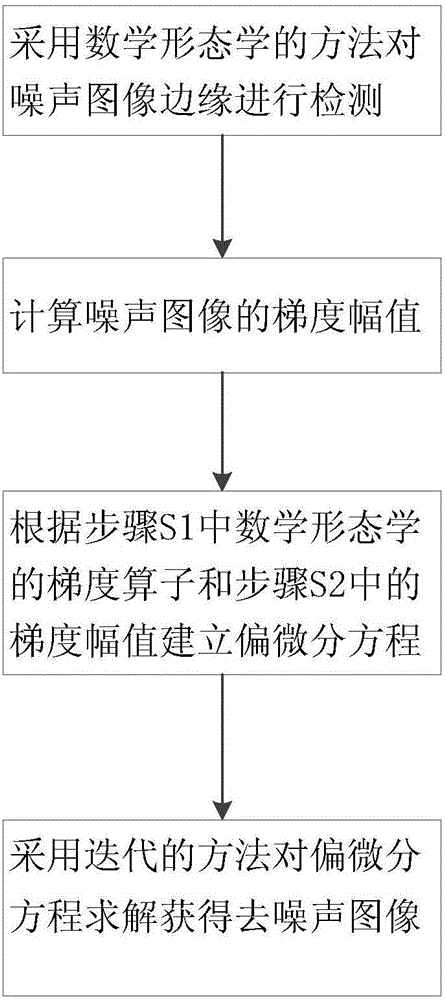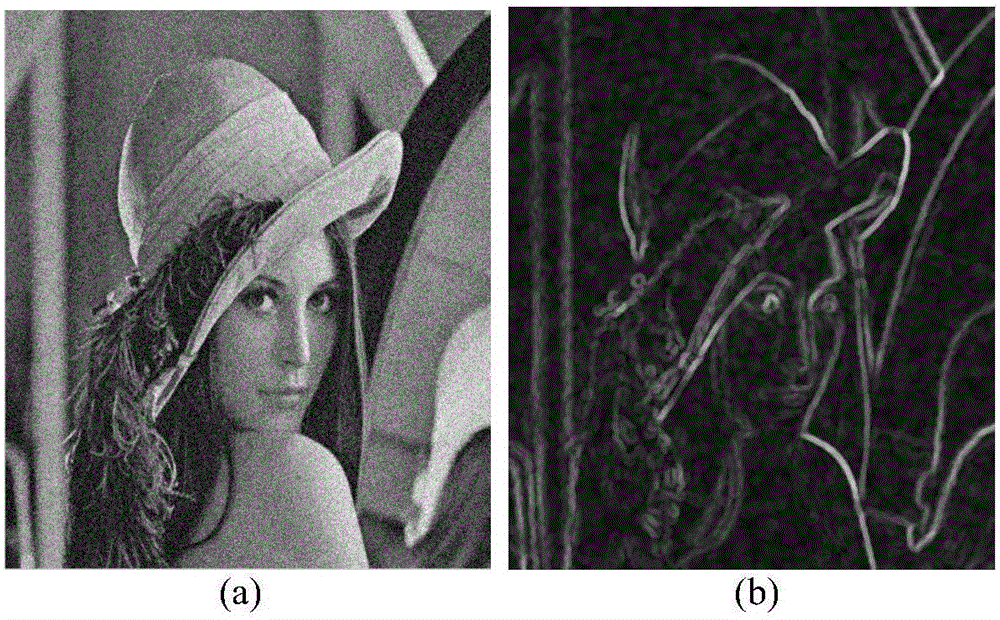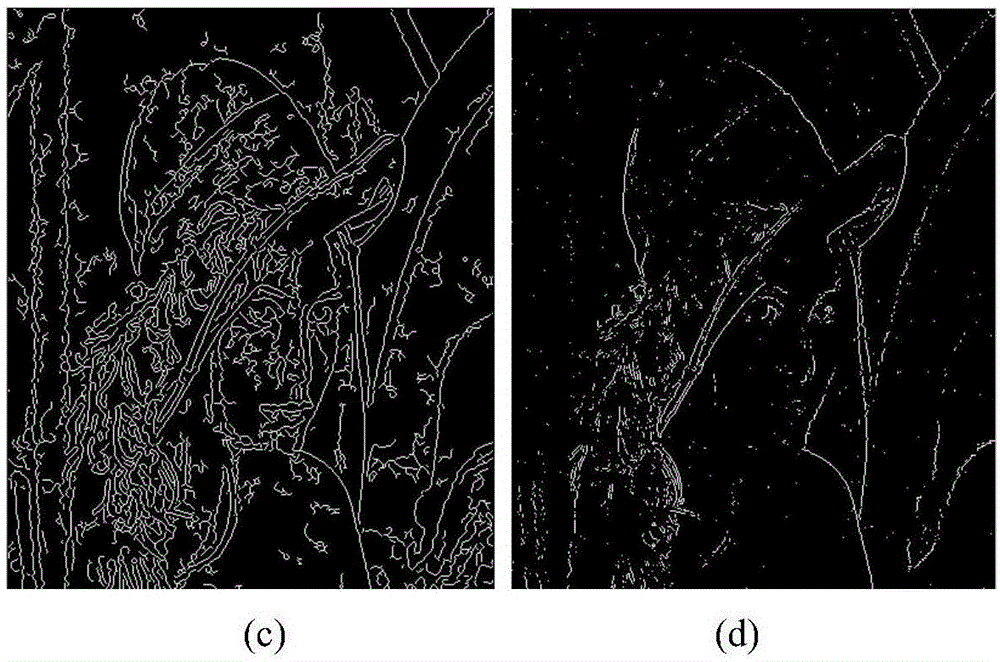Four-order partial differential equation image denoising method based on mathematical morphology
A technology of partial differential equations and mathematical forms, applied in the field of image processing, can solve problems such as blurred edge details and achieve good visual effects
- Summary
- Abstract
- Description
- Claims
- Application Information
AI Technical Summary
Problems solved by technology
Method used
Image
Examples
Embodiment Construction
[0028] The preferred embodiments of the present invention will be described in detail below in conjunction with the accompanying drawings; it should be understood that the preferred embodiments are only for illustrating the present invention, rather than limiting the protection scope of the present invention.
[0029] A fourth-order partial differential equation image denoising method based on mathematical morphology, comprising the following steps: S1 uses mathematical morphology to detect the edge of the noise image; S2 calculates the gradient magnitude of the noise image; S3 according to the mathematical morphology in step S1 The partial differential equation is established by the learned gradient operator and the gradient magnitude in step S2, and S4 adopts an iterative method to solve the partial differential equation to obtain a denoised image.
[0030] Mathematical morphology is a discipline based on strict mathematical theory. Its basic idea is to use certain structural...
PUM
 Login to View More
Login to View More Abstract
Description
Claims
Application Information
 Login to View More
Login to View More - R&D
- Intellectual Property
- Life Sciences
- Materials
- Tech Scout
- Unparalleled Data Quality
- Higher Quality Content
- 60% Fewer Hallucinations
Browse by: Latest US Patents, China's latest patents, Technical Efficacy Thesaurus, Application Domain, Technology Topic, Popular Technical Reports.
© 2025 PatSnap. All rights reserved.Legal|Privacy policy|Modern Slavery Act Transparency Statement|Sitemap|About US| Contact US: help@patsnap.com



